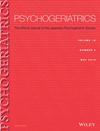老年人肌肉疏松症和抑郁症状的患病率:范围界定综述
IF 1.7
4区 医学
Q3 GERIATRICS & GERONTOLOGY
引用次数: 0
摘要
肌肉疏松症会导致骨骼肌质量下降,并降低肌肉力量和功能。抑郁症状是老年病患者的常见病因,严重影响老年人的生活质量。最近有研究表明,肌肉疏松症与抑郁症之间存在相关性。为了确定肌肉疏松症和抑郁症状的发病率,并找出与肌肉疏松症相关的因素,我们系统地检索了 SCOPUS、Science Direct 和 PubMed 数据库中 2012 年至 2022 年发表的有关肌肉疏松症和抑郁症状的论文。我们回顾了有关肌肉疏松症、抑郁症状患病率、同时患有肌肉疏松症和抑郁症状的受试者患病率以及与肌肉疏松症相关因素的文献。仅纳入了横断面研究。有 19 篇文章符合纳入审查的标准,总体肌肉疏松症发病率介于 3.9% 与 41.7% 之间。有七项研究报告了抑郁症状的发生率,从 8.09% 到 40% 不等。最常用于诊断肌肉疏松症和抑郁症状的工具分别是欧洲老年人肌肉疏松症工作组共识和老年抑郁量表。研究发现,高龄、营养不良、肥胖、合并症(高血压和糖尿病)、认知功能受损和使用多种药物是与肌肉疏松症相关的因素。研究发现,肌肉疏松症和抑郁症状会对老年人的健康造成不利影响。应采取适当的营养评估和干预措施来控制这两种老年病。应计划开展进一步研究,考虑采取多领域干预策略,以改善肌肉疏松症和老年人的心理健康。本文章由计算机程序翻译,如有差异,请以英文原文为准。
Prevalence of sarcopenia and depressive symptoms among older adults: a scoping review
Sarcopenia causes a loss of skeletal muscle mass and decreases muscle strength and function. Depressive symptoms are a common cause of distress among geriatrics, significantly affecting the quality of life of older adults. Recently, studies have shown that a correlation exists between sarcopenia and depression. To determine the prevalence of sarcopenia and depressive symptoms and identify the factors associated with sarcopenia, we systematically searched the SCOPUS, Science Direct, and PubMed databases for papers on sarcopenia and depressive symptoms published from 2012 to 2022. We reviewed the literature on sarcopenia, depressive symptom prevalence, the prevalence of subjects with both sarcopenia and depressive symptoms, and the factors associated with sarcopenia. Only cross-sectional studies were included. Nineteen articles met the inclusion criteria for review, with overall sarcopenia prevalence ranging from 3.9% to 41.7%. The prevalence of depressive symptoms was reported in seven studies, ranging from 8.09% to 40%. The most commonly used tools to diagnose sarcopenia and depressive symptoms were the European Working Group on Sarcopenia in Older People consensus and the Geriatric Depression Scale, respectively. Being aged, malnourished, obese, having comorbidities (hypertension and diabetes), having impaired cognitive function, and having polypharmacy were found to be the factors associated with sarcopenia. Sarcopenia and depressive symptoms have been found to cause adverse health outcomes among older people. Appropriate nutritional assessments and interventions should be taken to manage these two geriatric conditions. Further studies should be planned, considering multidomain intervention strategies to improve sarcopenia and older people's mental health.
求助全文
通过发布文献求助,成功后即可免费获取论文全文。
去求助
来源期刊

Psychogeriatrics
Medicine-Geriatrics and Gerontology
CiteScore
3.60
自引率
5.00%
发文量
115
审稿时长
>12 weeks
期刊介绍:
Psychogeriatrics is an international journal sponsored by the Japanese Psychogeriatric Society and publishes peer-reviewed original papers dealing with all aspects of psychogeriatrics and related fields
The Journal encourages articles with gerontopsychiatric, neurobiological, genetic, diagnostic, social-psychiatric, health-political, psychological or psychotherapeutic content. Themes can be illuminated through basic science, clinical (human and animal) studies, case studies, epidemiological or humanistic research
 求助内容:
求助内容: 应助结果提醒方式:
应助结果提醒方式:


